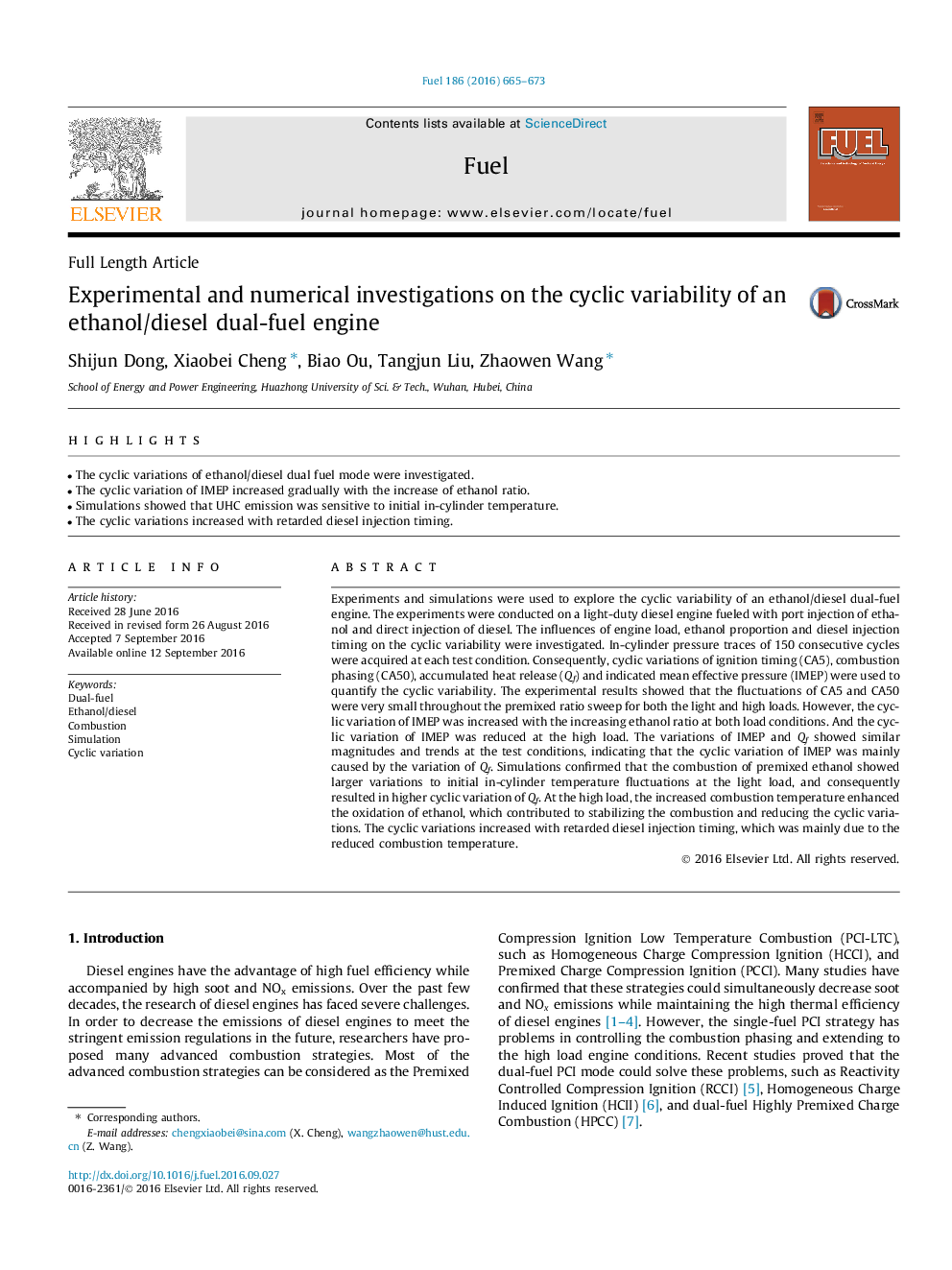| کد مقاله | کد نشریه | سال انتشار | مقاله انگلیسی | نسخه تمام متن |
|---|---|---|---|---|
| 6476170 | 1424978 | 2016 | 9 صفحه PDF | دانلود رایگان |
- The cyclic variations of ethanol/diesel dual fuel mode were investigated.
- The cyclic variation of IMEP increased gradually with the increase of ethanol ratio.
- Simulations showed that UHC emission was sensitive to initial in-cylinder temperature.
- The cyclic variations increased with retarded diesel injection timing.
Experiments and simulations were used to explore the cyclic variability of an ethanol/diesel dual-fuel engine. The experiments were conducted on a light-duty diesel engine fueled with port injection of ethanol and direct injection of diesel. The influences of engine load, ethanol proportion and diesel injection timing on the cyclic variability were investigated. In-cylinder pressure traces of 150 consecutive cycles were acquired at each test condition. Consequently, cyclic variations of ignition timing (CA5), combustion phasing (CA50), accumulated heat release (Qf) and indicated mean effective pressure (IMEP) were used to quantify the cyclic variability. The experimental results showed that the fluctuations of CA5 and CA50 were very small throughout the premixed ratio sweep for both the light and high loads. However, the cyclic variation of IMEP was increased with the increasing ethanol ratio at both load conditions. And the cyclic variation of IMEP was reduced at the high load. The variations of IMEP and Qf showed similar magnitudes and trends at the test conditions, indicating that the cyclic variation of IMEP was mainly caused by the variation of Qf. Simulations confirmed that the combustion of premixed ethanol showed larger variations to initial in-cylinder temperature fluctuations at the light load, and consequently resulted in higher cyclic variation of Qf. At the high load, the increased combustion temperature enhanced the oxidation of ethanol, which contributed to stabilizing the combustion and reducing the cyclic variations. The cyclic variations increased with retarded diesel injection timing, which was mainly due to the reduced combustion temperature.
Journal: Fuel - Volume 186, 15 December 2016, Pages 665-673
